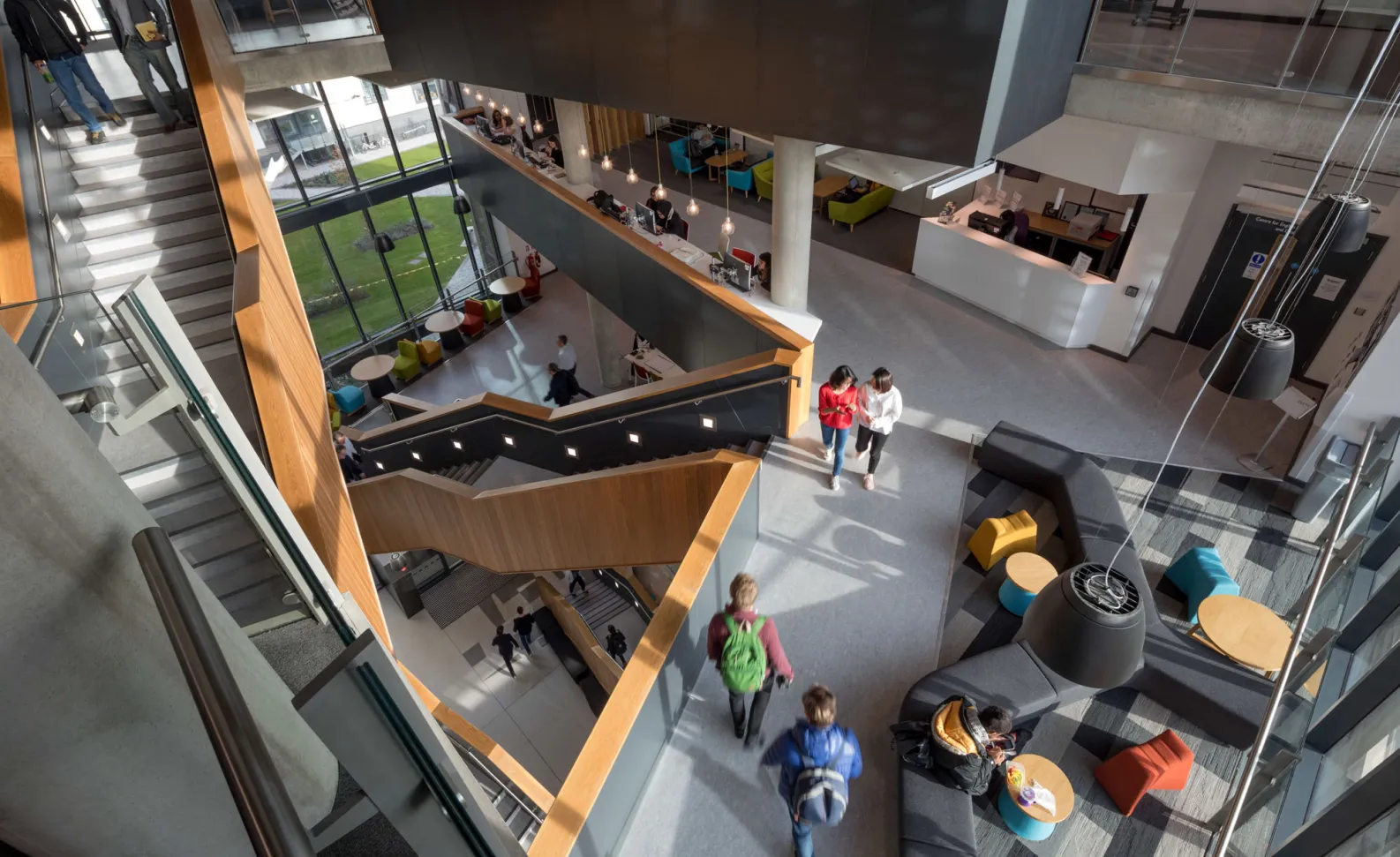Insight
Funding fears: How collaboration is key to education delivery
11 Apr 2024

William Phillips
National Director
A high level of demand in an increasingly strained sector has been the viewpoint of many when discussing the need to provide school spaces in our communities and fuel the nation’s learning. However, with the RAAC crisis and funding shortfalls escalating fears of an unfit school stock, our national discipline director, William Phillips, discusses how the education sector can benefit from early engagement and a collaborative approach, to deliver lifelong learning environments and truly exceed in providing education for all.
A decade of decline
Last November, the National Education Union (NEC) revealed that more than 60% of its near 4,000 members thought long-term investment in school buildings was insufficient. It is perhaps one of the many reasons, with school spending power six per cent lower than levels seen more than a decade ago, that education is so firmly in the media spotlight.
By its own admission, the UK government has revealed that the average primary school in England needs £300,000 worth of maintenance or upgrades, while the average secondary school needs an estimated £1.5m. The RAAC crisis only escalated matters further, adding to a backlog of repairs that are growing fast and regular in nature. Tensions too, have only been heightened by recent repair funding levels from the Department for Education (DfE), which have seen a shortfall of 60% compared to 2020/21 levels.
Education funding is a complicated process, with different responsibilities shared between central government, devolved administrations, local authorities and the schools themselves.
As cost consultants in this space, we don’t get involved in the politics of this process, but understand the difficulties our clients face, utilising cost-effective design techniques and our experience to enhance their environments. We’ve already touched on how modern methods of construction (MMC) has rapidly helped in this respect, with offsite programmes assembled quickly to minimise disruption to term times and help meet school demands.
More centrally, it is the concept behind this that is so important to meeting and defeating school maintenance worries – collaboration and long-term planning.
Developing market-leading support
At Pick Everard, we work with many schools, sixth forms, colleges and universities across the education space. We’ve delivered more than 120 Department for Education (DfE) projects and adapted these skills to unique environments, including those for Special Education Needs/Disabilities (SEND) design. What we have learned from this is the hugely important role of procurement, with speed-to-market, depth of expertise and unrivalled supply chain accessibility ultimately transforming lifelong learning across our regions.
Take for example our work in Bedford. For more than a decade we have worked with Bedford Borough Council to successfully plan and deliver their school strategy, navigating the ever-growing pressure for school spaces in line with broader requirements for new housing developments and accommodation. Currently, we are on track to help deliver more than 2,500 school spaces in the region by 2026, working on some of the largest schools nationwide.
The work has undoubtedly been enhanced by making decisions quickly and effectively, with the council able to procure our services under complete compliance and with access to local SMEs, which truly care about their region and the end results of their work.
However, this type of long-term planning is not a universal pattern across the country. One only has to switch to headlines of schools struggling to meet expensive PFI contracts to see day-to-day maintenance is having to take priority, let alone prospecting for the future.
A roadmap for the future
What we must see is each stakeholder involved in the development process to work together instead of in silos. It requires collaboration between central government, headteachers, contractors, consultants and local authorities all working together, mapping out educational requirements alongside healthcare, social and other local needs, to deliver long term planning and prosperity in our regions.
We must switch mindsets and truly buy-in to a philosophy of establishing a built environment fit for our children, backed by green-design initiatives and driven by wider net-zero ambitions, which in turn inspires the next generation of workers in our industry and potentially, helps plug an ever-widening construction skills gap.
As consultants, we must develop new techniques that map our services effectively, whilst showcasing procurement models that allow a more streamlined use of public sector funds – away from overly complex and unnecessary processes to frameworks that enable fast-to-market, flexible service with complete compliance.
We must collaborate to achieve better, lessen the risk of failing our future generations, and create a lasting, positive impact on the communities we serve.
For more information on how we can meet your education requirements, contact us today.

Speak to our team
Education
We are privileged to work on hundreds of education projects that are improving the lives of children and young adults from pre-school, right through to higher education.
